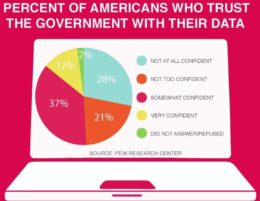![]()

TheThreefoldAdvocate
A recent Pew study found that few Americans trust institutions with their private data.
“You know how in the movies, someone will be hacking a computer and you can’t actually see the screen?” said John-Mark Harris, a freshman kinesiology major at John Brown University.
Harris suggested that the reason they don’t show the hacking process in movies is because it is actually a very long and complex process that would completely bore viewers. Harris has some experience in hacking and gave some insight into the actual process of getting into the system. “Hacking involves messing with the coding of the computer itself,” he said. “I was working on a very old computer and it still took me about an hour.”
Numerous news allegations of hackers getting more advanced and possibly getting into the U.S. databases have been shared recently in the media.
According to BBC, two former cyber-security experts at Russia’s intelligence agency were recently charged with treason and accused of working with U.S. interests.
Harris warned against the dishonest values of hacking.
“There are many honest reasons against it if you’re actually doing it to achieve something that is illegal or wrong,” Harris said.
Emily Auel, sophmore marketing and international business major, also expressed concern over the issue of hacking.
“I think hacking is becoming a problem because our generation is becoming so technologically advanced,” Auel said. “The everyday person doesn’t have knowledge to protect themselves against advanced hackers.”
According to Auel, a member of the JBU choir had her Eaglenet account hacked last semester.
She got an email saying that her JBU account storage was full, and through a link the email her account was hacked. She had to seek out tech services on campus to fix the problem.
Katie Maurer, junior intercultural communications major at JBU, also knows many people who have been hacked in one way or another.
“My friend from the University of Arkansas was hacked on Instagram, and it took her 24 hours to recover her account,” Maurer said. “None of her pictures were printed, so she was scared she would lose all the memories.”
Maurer said that in the age of technology, most information and personal memories are stored online. “Everything is going digital and this creates more motives for people to hack.”




